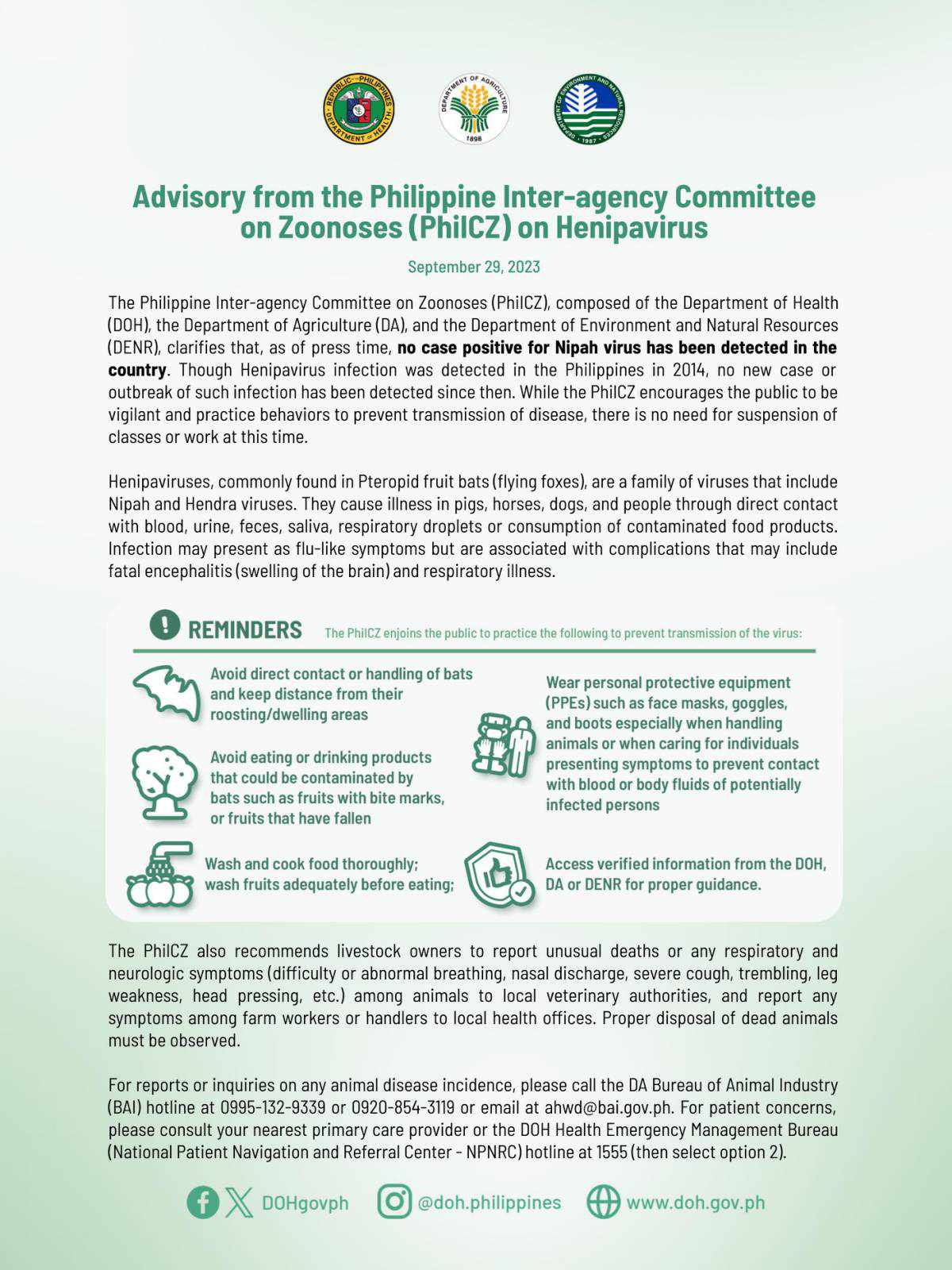The Philippine Inter-agency Committee on Zoonoses (PhilCZ) issued an advisory on Henipavirus, stating no confirmed cases of Nipah virus in the country.
PhilCZ, composed of the Department of Health (DOH), Department of Agriculture (DA), and Department of Environment and Natural Resources (DENR), said on Friday, Sept. 29 that there have been no recent cases or outbreaks of Henipavirus in the country since 2014.

It encouraged the public to remain vigilant and take preventive measures to avoid disease transmission but emphasized that class or work suspensions are unnecessary at this time.
DOH said henipaviruses, including Nipah and Hendra viruses, are commonly found in Pteropid fruit bats (flying foxes).
It noted that these viruses can cause illness in pigs, horses, dogs, and humans through various forms of contact, including direct contact with bodily fluids, respiratory droplets, or consumption of contaminated food products.
While Henipavirus infection can initially present as flu-like symptoms, it can lead to severe complications such as fatal encephalitis (brain swelling) and respiratory illness, DOH said
To prevent the transmission of the virus, PhilCZ advised the public to avoid direct contact with bats and to maintain a safe distance from their roosting or dwelling areas.
The public should also refrain from consuming fruits with bites or fallen fruits that may have been contaminated by bats, it added.
DOH also recommended proper food handling, thorough washing, and cooking of food items.
The health department also stated that when handling animals or caring for individuals with symptoms, the use of personal protective equipment (PPE) is encouraged to prevent contact with potentially infected bodily fluids.
PhilCZ urged the public to seek verified information from the DOH, DA, and DENR for accurate guidance.
For livestock owners, PhilCZ said that it is essential to report unusual deaths or symptoms in animals, such as respiratory and neurologic issues, to local veterinary authorities.
Any symptoms observed among farm workers or handlers should also be reported to local health offices. Proper disposal of dead animals is of utmost importance, it added. (Zekinah Elize Espina)